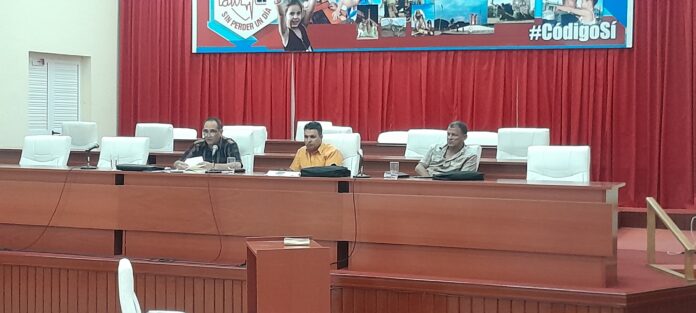The Provincial Council of the People’s Power Government evaluated its main socioeconomic indicators this Monday in Ciego de Ávila, including other issues such as exports and solutions to voters’ proposals, pending investment.
The meeting was headed by Liván Izquierdo Alonso, Secretary of the Provincial Committee of the Party in Ciego de Ávila, and the Governor of Popular Power Alfre Menéndez Pérez, who emphasized the importance of defining financial schemes to respond to the proposals of the population in matters supply and sanitation of water.
During the meeting it was learned that in order to solve the 20 proposals of the voters of the main municipality, pending investment, it would be necessary to finance some 32 million pesos, explained Edwin González González, Provincial Delegate of Hydraulic Resources.
In the same way, the Provincial Council of the People’s Power Government analyzed the insurance plan for the current summer, as well as the result of the actions to increase income, reduce expenses and achieve a surplus.
Iliana Venegas Acosta, Provincial Director of Economy and Planning, argued how the province grows in its net sales by 10.7 percent, but that the production of goods and services in the ten municipalities is still insufficient.
Regarding the analysis of exports, it was investigated the productive chains and the use of airports and seaports for such an important activity.
Of the classic exportable items such as shrimp, citrus fruits, tobacco, rums and charcoal, each Avilanian municipality must strategically project new items that guarantee import substitution, including added values.
The Provincial Council of the People’s Power Government in Ciego de Ávila also discussed the land and urban planning plan, as well as the urgency of eradicating urban illegalities such as the proliferation of horse excrement in the city, among other indiscipline.
The Provincial Council of the Government of People’s Power in Ciego de Ávila also analyzed a summary of the acts of corruption at the end of the first semester of the year, at the same time that it approved the proposals for water balance and rural schools for one or five children of primary.




